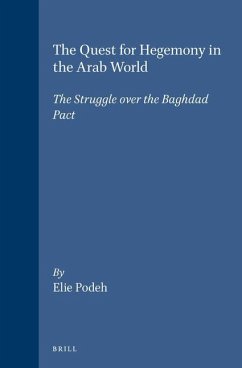The struggle between Egypt and Iraq over Arab hegemony constitutes the main theme of this study. Focussing on the struggle over Middle Eastern defense between 1945-58, and culminating in the conflict over the Baghdad Pact (1955-58), it sheds new light on Arab politics during the period under review. This research concentrates predominantly on the regional actors. The underlying assumption is that policies were not necessarily formulated in Washington and London, and that -- often enough -- major decisions taken in Ankara, Cairo, Baghdad, Damascus, Amman and other Arab capitals affected decision-makers in Western capitals. "The Quest for Hegemony in the Arab World is based on newly-released British, American and Israeli documents, as well as on all available Arab sources. The study's value rests upon its discussion of the Baghdad Pact, a significant event which was hitherto neglected, yet marked a watershed in modern Arab history. This study's approach offers an analytical framework with which the present struggle for hegemony in the Arab world may be examined.
Bitte wählen Sie Ihr Anliegen aus.
Rechnungen
Retourenschein anfordern
Bestellstatus
Storno

